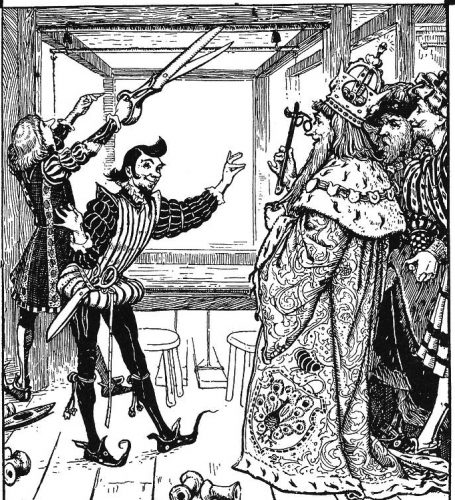The fairy tale is a very popular but somewhat underrated literary form. It is very well known by all across all age groups; perhaps better known and more commonly circulated than any other genre of literature. It holds high currency all around the world. Although a European form, this ascendancy obtains in the Caribbean where it has even been part of formal education. It has been entrenched and has survived in society even more than the local folklore, most of which were never elevated to a place in formal schooling. Furthermore, many almost-forgotten local tales have been very heavily influenced by fairy tales.
In spite of their popularity and influence, the importance of fairy tales has been downplayed and largely unrecognised. They have been relegated to mere children’s literature. This may be linked to a long western tradition, aided and abetted by their appearance of simplicity, unreal world of fantasy and magic, often dreamlike environments, talking animals with human characteristics , rags to riches motifs and happy endings.

But this brand of folk tale is much more than that. In Europe, for example, it has survived for centuries, with possible origins in the Middle Ages reflected in the supernatural and myth in which people actually believed. It has survived with great potency because of what it reflects of the world picture, beliefs, and the interplay of vice and virtue, a promotion of good human qualities and a wish for the triumph of good over evil.
Nevertheless, these tales are deceptive. Despite the fantasy and magic, they often hide a much harsher reality. Many contain more violence and sexuality than is commonly known. Though most of the sexual content has been edited out, much of the violence remains. It is likely they were never originally created for children. They carry statements against human vice, with large servings of evil and the grotesque. It is to be remembered that this is a universal form of oral literature that has its equivalents in Africa, India, China and the Caribbean.
Take “The Emperor’s New Clothes” for instance. It is a good example of what these stories teach about the society and the warnings they give to people, far above the good qualities they teach to children. They have many positive characteristics and the most common type is the fairy tales collected and published in the nineteenth century by the Brothers Grimm of Germany. Jacob Grimm (1785 – 1863) and Wilhelm Grimm (1786 – 1859) collected and published the main types known today, including those known by the German term marchen. They belong to oral literature, although many come from literary sources and are written by authors.
The best known in the literary genre were written and published by Hans Christian Andersen of Denmark (1805 – 1875). “The Emperor’s New Clothes” was published in 1837 as a story for children, but was also meant to satirise society and human nature, since Andersen called it a “moral”. He took the story from sources in oral literature and wrote it, as he did most of his other stories of the type, closely along the lines of the fairy tale. It is therefore a fairy tale of the literary type.
The Emperor’s New Clothes
By Hans Christian Andersen
Many years ago, there was an Emperor, who was so excessively fond of new clothes, that he spent all his money on being finely dressed. He did not trouble himself in the least about his soldiers; nor did he care to go either to the theatre or the chase, except for the opportunities then afforded him for displaying his new clothes. He had a different suit for each hour of the day; and as of any other king or emperor, one is accustomed to say, “he is sitting in council,” it was always said of him, “The Emperor is sitting in his wardrobe.”
Time passed merrily in the large town which was his capital; strangers arrived every day at the court. One day, two rogues, calling themselves weavers, made their appearance. They said that they knew how to weave cloth of the most beautiful colours and elaborate patterns, the clothes manufactured from which should have the wonderful property of remaining invisible to everyone who was unfit for the office he held, or who was extraordinarily simple in character.
“These must, indeed, be splendid clothes!” thought the Emperor. “Had I such a suit, I might at once find out what men in my realms are unfit for their office, and also be able to distinguish the wise from the foolish! This stuff must be woven for me immediately.” And he caused large sums of money to be given to both the weavers in order that they might begin their work directly.
So the two pretend weavers set up two looms, and worked very busily, though in reality they did nothing at all. They asked for the most delicate silk and the purest gold thread; put both into their own knapsacks; and then continued their pretend work at the empty looms until late at night.
“I should like to know how the weavers are getting on with my cloth,” said the Emperor to himself, after some little time had elapsed; he was, however, rather embarrassed, when he remembered that a simpleton, or one unfit for his office, would be unable to see the manufacture. To be sure, he thought he had nothing to risk in his own person; but yet, he would prefer sending somebody else, to bring him intelligence about the weavers, and their work, before he troubled himself in the affair. All the people throughout the city had heard of the wonderful property the cloth was to possess; and all were anxious to learn how wise, or how ignorant, their neighbours might prove to be.
“I will send my faithful old minister to the weavers,” said the Emperor at last, after some deliberation, “he will be best able to see how the cloth looks; for he is a man of sense, and no one can be more suitable for his office than he is.”
So the faithful old minister went into the hall, where the knaves were working with all their might, at their empty looms. “What can be the meaning of this?” thought the old man, opening his eyes very wide. “I cannot discover the least bit of thread on the looms.” However, he did not express his thoughts aloud.
The impostors requested him very courteously to be so good as to come nearer their looms; and then asked him whether the design pleased him, and whether the colours were not very beautiful; at the same time pointing to the empty frames. The poor old minister looked and looked, he could not discover anything on the looms, for a very good reason, viz: there was nothing there. “What!” thought he again. “Is it possible that I am a simpleton? I have never thought so myself; and no one must know it now if I am so. Can it be that I am unfit for my office? No, that must not be said either. I will never confess that I could not see the stuff.”
“Well, Sir Minister!” said one of the knaves, still pretending to work. “You do not say whether the stuff pleases you.”
“Oh, it is excellent!” replied the old minister, looking at the loom through his spectacles. “This pattern, and the colours, yes, I will tell the Emperor without delay, how very beautiful I think them.”
“We shall be much obliged to you,” said the impostors, and then they named the different colours and described the pattern of the pretended stuff. The old minister listened attentively to their words, in order that he might repeat them to the Emperor; and then the knaves asked for more silk and gold, saying that it was necessary to complete what they had begun. However, they put all that was given them into their knapsacks; and continued to work with as much apparent diligence as before at their empty looms.
The Emperor now sent another officer of his court to see how the men were getting on, and to ascertain whether the cloth would soon be ready. It was just the same with this gentleman as with the minister; he surveyed the looms on all sides, but could see nothing at all but the empty frames. “Does not the stuff appear as beautiful to you, as it did to my lord the minister?” asked the impostors of the Emperor’s second ambassador; at the same time making the same gestures as before, and talking of the design and colours which were not there.
“I certainly am not stupid!” thought the messenger. “It must be that I am not fit for my good, profitable office! That is very odd; however, no one shall know anything about it.” And accordingly he praised the stuff he could not see, and declared that he was delighted with both colours and patterns. “Indeed, please your Imperial Majesty,” said he to his sovereign when he returned, “the cloth which the weavers are preparing is extraordinarily magnificent.”
The whole city was talking of the splendid cloth which the Emperor had ordered to be woven at his own expense.
And now the Emperor himself wished to see the costly manufacture, while it was still in the loom. Accompanied by a select number of officers of the court, among whom were the two honest men who had already admired the cloth, he went to the crafty impostors, who, as soon as they were aware of the Emperor’s approach, went on working more diligently than ever; although they still did not pass a single thread through the looms.
“Is not the work absolutely magnificent?” said the two officers of the crown, already mentioned. “If your Majesty will only be pleased to look at it! What a splendid design! What glorious colours!” They pointed to the empty frames; for they imagined that everyone else could see this exquisite piece of workmanship.
“How is this?” said the Emperor to himself. “I can see nothing! This is indeed a terrible affair! Am I a simpleton, or am I unfit to be an Emperor? That would be the worst thing that could happen—Oh! the cloth is charming,” said he, aloud. “It has my complete approbation.” And he smiled most graciously, and looked closely at the empty looms; for on no account would he say that he could not see what two of the officers of his court had praised so much. All his retinue now strained their eyes, hoping to discover something on the looms, but they could see no more than the others; nevertheless, they all exclaimed, “Oh, how beautiful!” and advised his majesty to have some new clothes made from this splendid material, for the approaching procession. “Magnificent! Charming! Excellent!” resounded on all sides; and everyone was uncommonly gay. The Emperor shared in the general satisfaction; and presented the impostors with the riband of an order of knighthood, to be worn in their button-holes, and the title of “Gentlemen Weavers.”
The rogues sat up the whole of the night before the day on which the procession was to take place, and had sixteen lights burning, so that everyone might see how anxious they were to finish the Emperor’s new suit. They pretended to roll the cloth off the looms; cut the air with their scissors; and sewed with needles without any thread in them. “See!” cried they, at last. “The Emperor’s new clothes are ready!”
And now the Emperor, with all the grandees of his court, came to the weavers; and the rogues raised their arms, as if in the act of holding something up, saying, “Here are your Majesty’s trousers! Here is the scarf! Here is the mantle! The whole suit is as light as a cobweb; one might fancy one has nothing at all on, when dressed in it; that, however, is the great virtue of this delicate cloth.”
“Yes indeed!” said all the courtiers, although not one of them could see anything of this exquisite manufacture.
“If your Imperial Majesty will be graciously pleased to take off your clothes, we will fit on the new suit, in front of the looking glass.”
The Emperor was accordingly undressed, and the rogues pretended to array him in his new suit; the Emperor turned round, from side to side, before the looking glass.
“How splendid his Majesty looks in his new clothes, and how well they fit!” everyone cried out. “What a design! What colours! These are indeed royal robes!”
“The canopy which is to be borne over your Majesty, in the procession, is waiting,” announced the chief master of the ceremonies.
“I am quite ready,” answered the Emperor. “Do my new clothes fit well?” asked he, turning himself round again before the looking glass, in order that he might appear to be examining his handsome suit.
The lords of the bedchamber, who were to carry his Majesty’s train, felt about on the ground, as if they were lifting up the ends of the mantle; and pretended to be carrying something; for they would by no means betray anything like simplicity, or unfitness for their office.
So now the Emperor walked under his high canopy in the midst of the procession, through the streets of his capital; and all the people standing by, and those at the windows, cried out, “Oh! How beautiful are our Emperor’s new clothes! What a magnificent train there is to the mantle; and how gracefully the scarf hangs!” In short, no one would allow that he could not see these much-admired clothes; because, in doing so, he would have declared himself either a simpleton or unfit for his office. Certainly, none of the Emperor’s various suits had ever made so great an impression, as these invisible ones.
“But the Emperor has nothing at all on!” said a little child.
“Listen to the voice of innocence!” exclaimed his father; and what the child had said was whispered from one to another.
“But he has nothing at all on!” at last cried out all the people. The Emperor was vexed, for he knew that the people were right; but he thought the procession must go on now! And the lords of the bedchamber took greater pains than ever, to appear holding up a train, although, in reality, there was no train to hold.
***
Note how relevant this cautionary tale is to today’s society. This is one of the reasons fairy tales have survived. They speak to human behaviour.
In the story above, although it was a lesson delivered by swindlers, the emperor was punished for his overweening vanity. It was a flaw in his character, an indulgence that interfered with the quality of his governance. The suggestion was that he was indeed unfit for his high office since he neglected many important responsibilities of state because he was so vain. Everyone in the kingdom was mortally afraid of being exposed as unfit or as a simpleton. Even though this power of discovery was a false claim peddled by the rogues, it succeeded in exposing the emperor, both figuratively and literally.
It revealed the extent of deception in that society, and how every adult in the kingdom was guilty of it. All of the adults were made fools of by the tricksters. It took a mere child, free of learned pretensions, to expose not only the king, but all the adults who were afraid to admit that there were no exquisite clothes and that the king was naked. What the false weavers exquisitely spun on the empty looms was an exposure of the falseness of the whole kingdom. That is the unrecognised, unseen power of the underrated fairy tale.










